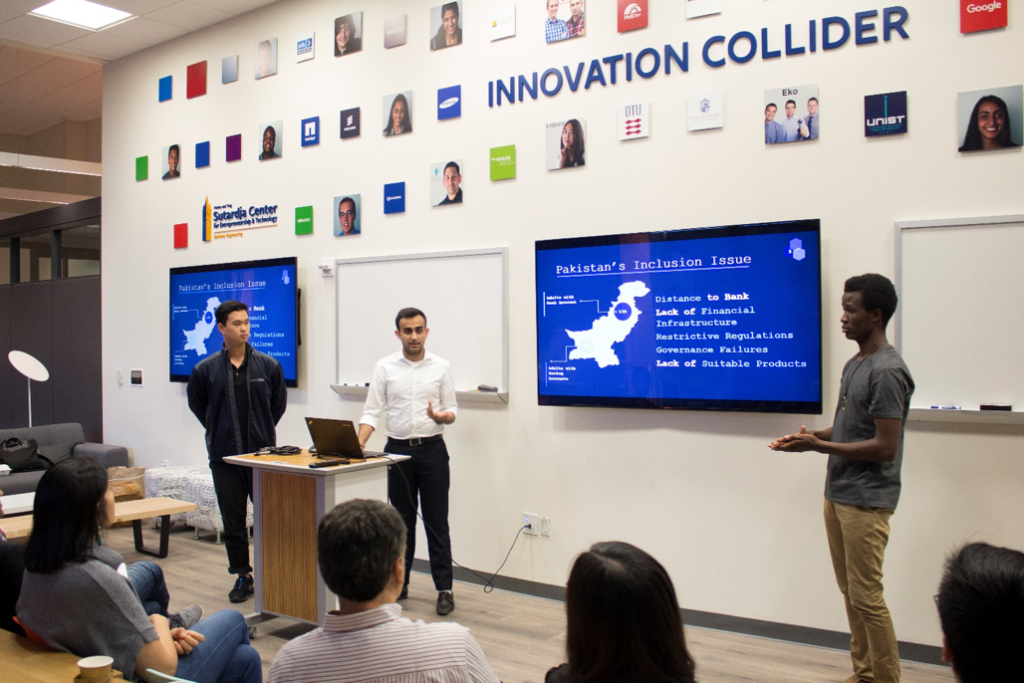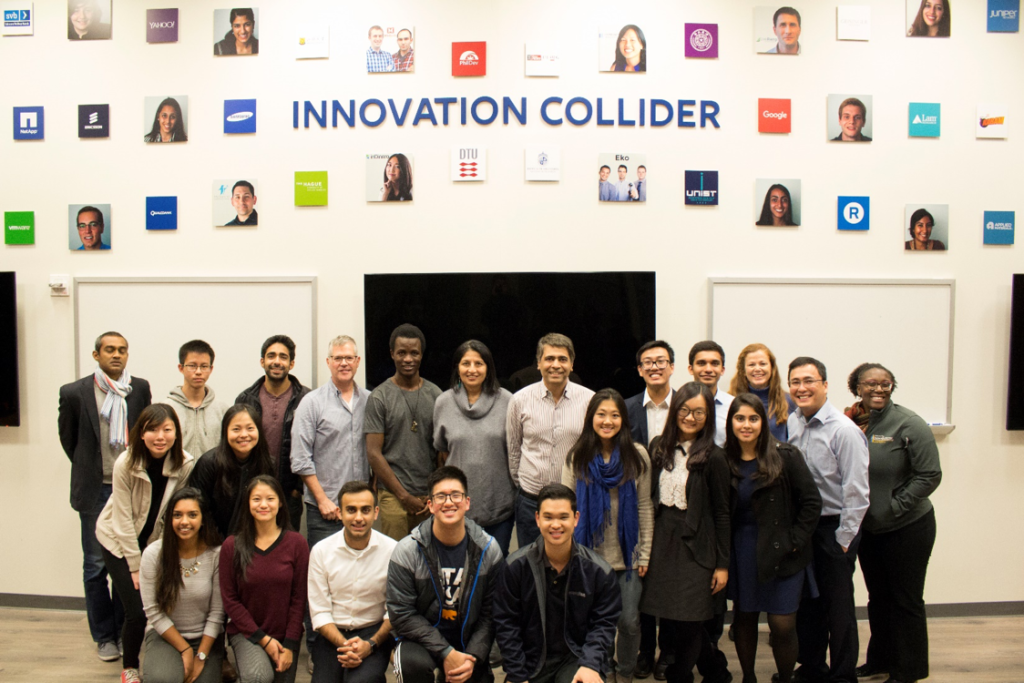
This past week the Sutardja Center of Entrepreneurship & Technology wrapped up its financial inclusion collider. Students from a range of disciplines worked on the financial inclusion motive that has been talked about at multiple points this semester; how do you get the 2bn unbanked population around the world to create bank accounts, and gain access to financial services?
The collider, led by the SCET Fintech advisor & ex-CIO at Standard Chartered, Anju Patwardhan, asked participating teams to propose easy to use, adaptable technological solutions that would increase the number of people who had access to basic financial services around the world. The collider was judged by Anju, SCET Founding Director Ikhlaq Sidhu, and Arjuna Costa, a partner at Omidyar Network who leads financial inclusion investments in emerging markets across Africa, South East Asia and Latin America.
Five participating teams proposed innovative solutions, mostly spanning the financially excluded market across India, Pakistan and South East Asia – solutions ranged on a variety of topics, including increasing financial literacy, better connecting existing / dormant bank accounts, making use of government promoted APIs and maximizing on the potential of cell phone / internet penetration across various regions.
The winning team, Chance, proposed an SMS-bot that allowed a potential 130m unbanked adults in Pakistan to make the most of an agent based model to withdraw, send, receive and deposit cash at near-zero costs and hence access basic financial services. Saad Hirani, Wing Vasiksiri and Wyckliffe Aluga, whose collective experience in Pakistan, Kenya and Thailand inspired them to work for the unbanked, explained the significance of using an SMS-based platform: “90% of all adults have access to cell phones, and they’re hooked on texting due to unlimited texting packages; only 7% of these people have access to internet services, which itself becomes very expensive,” Saad explained. “We wanted to utilize the fact that there exists a small grocery store at the corner of almost every street, but sometimes there isn’t a bank within a 2-mile radius, in such a densely packed population.” The team plans on using its prize money of $2000 from the collider to develop a quick MVP as it explores relationships with banks and microfinance institutions, and has applied to other incubators and platforms to develop the idea. Their slides can be viewed here.
Another project that received a notable mention was Asha-Pay, a well thought out platform that addresses India’s recent demonetization initiative. With 86% of the country’s cash deemed irrelevant and wiped out of the economy, small business face challenges to pay daily workers low wages; Asha Pay’s mobile wallet and cash-management / payment platform allows electronic money transfers, allowing companies the ability to keep a track of payments and by-pass the cash shortage issue. The team plans on working with India’s Adhaar API, one promoted by the government to increase electronic finance and crack down on the black market / illegal / tax-evading economy. Their slides can be viewed here.PDOS, inspired by the experience of SCET Global Partner PhilDev’s Dr. Matthew Escobido, aims to increase financial literacy within migrant workers in Philippines (and in the future, other countries), through core features such as financial goals, learning materials and community connecting services. Their presentation slides can be viewed here.
“This collider helped us learn a lot; 5 weeks ago, we didn’t know what market would be the best to cater to. Our business model was not profitable, we had no market validation and we were struggling to figure out how our idea worked. This collider really helped us understand roots of the inclusion issue, and forced us to think like unbanked, lower income societies, than students in a tech-centered environment.” – Wing Vasiksiri.
To learn more about the importance of financial inclusion, and read about other emerging areas within fin-tech, click the hyperlinked topics.
The aim of collider projects is to bring together students, researchers, investors, entrepreneurs and industry leaders in a learning environment to ‘collide’ and create ventures, solutions, research driven commercialization and opportunities to create impact in society. To learn more about collider projects led by the SCET, click here.
Anju Patwardhan is a Fulbright Fellow at Stanford University and was Standard Chartered’s global Chief Innovation Officer until July 2016. She is also an Innovation Fellow at National University of Singapore’s NUS Enterprise and serves on various World Economic Forum steering committees. She currently serves as an Industry Fellow and Fintech Collider Advisor at the Sutardja Center for Entrepreneurship and Technology – to learn more about the UC Berkeley Collider System and Anju Patwardhan, click here. To view financial inclusion and its role in financial stability from a more academic perspective, click here.

